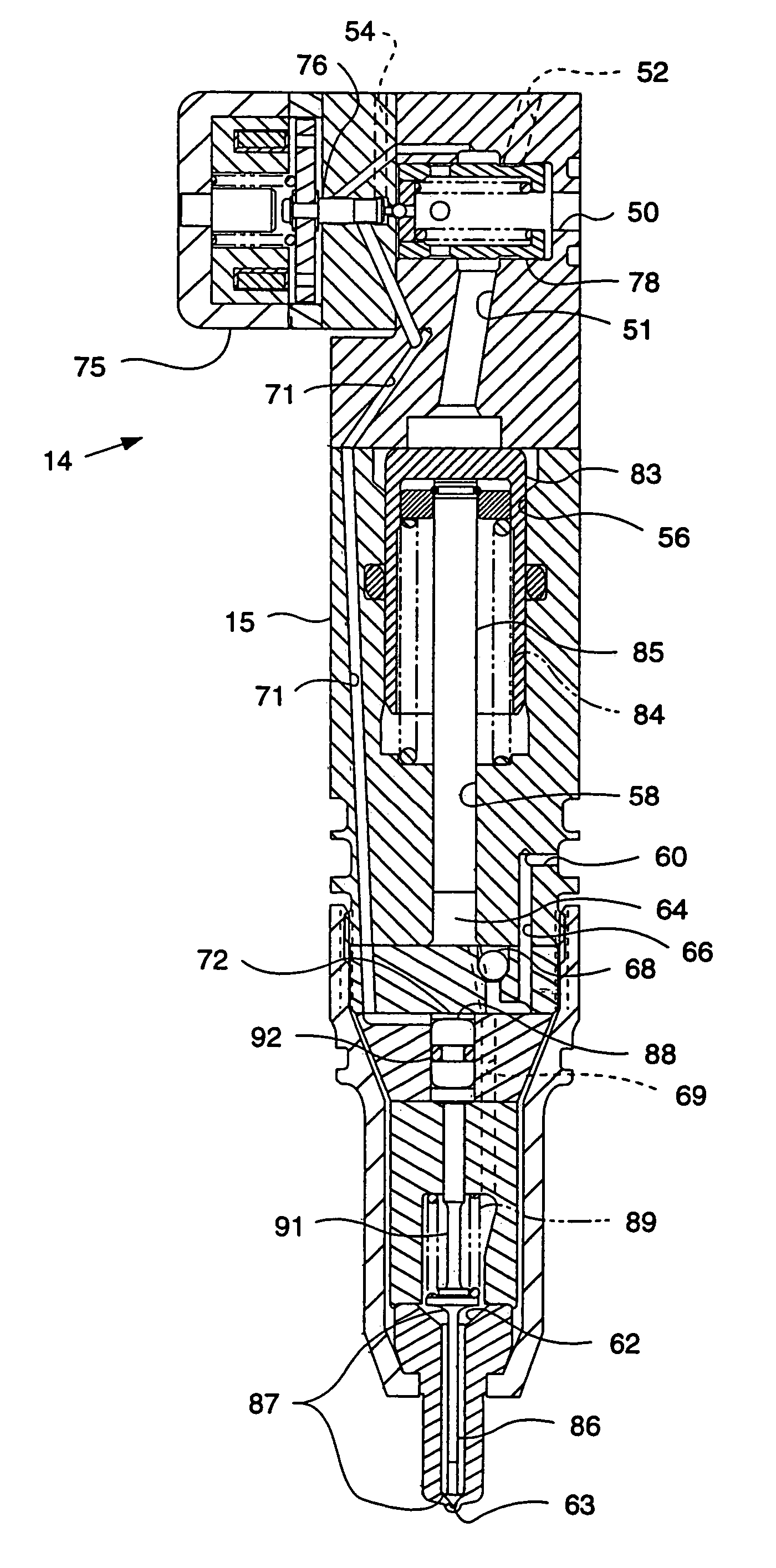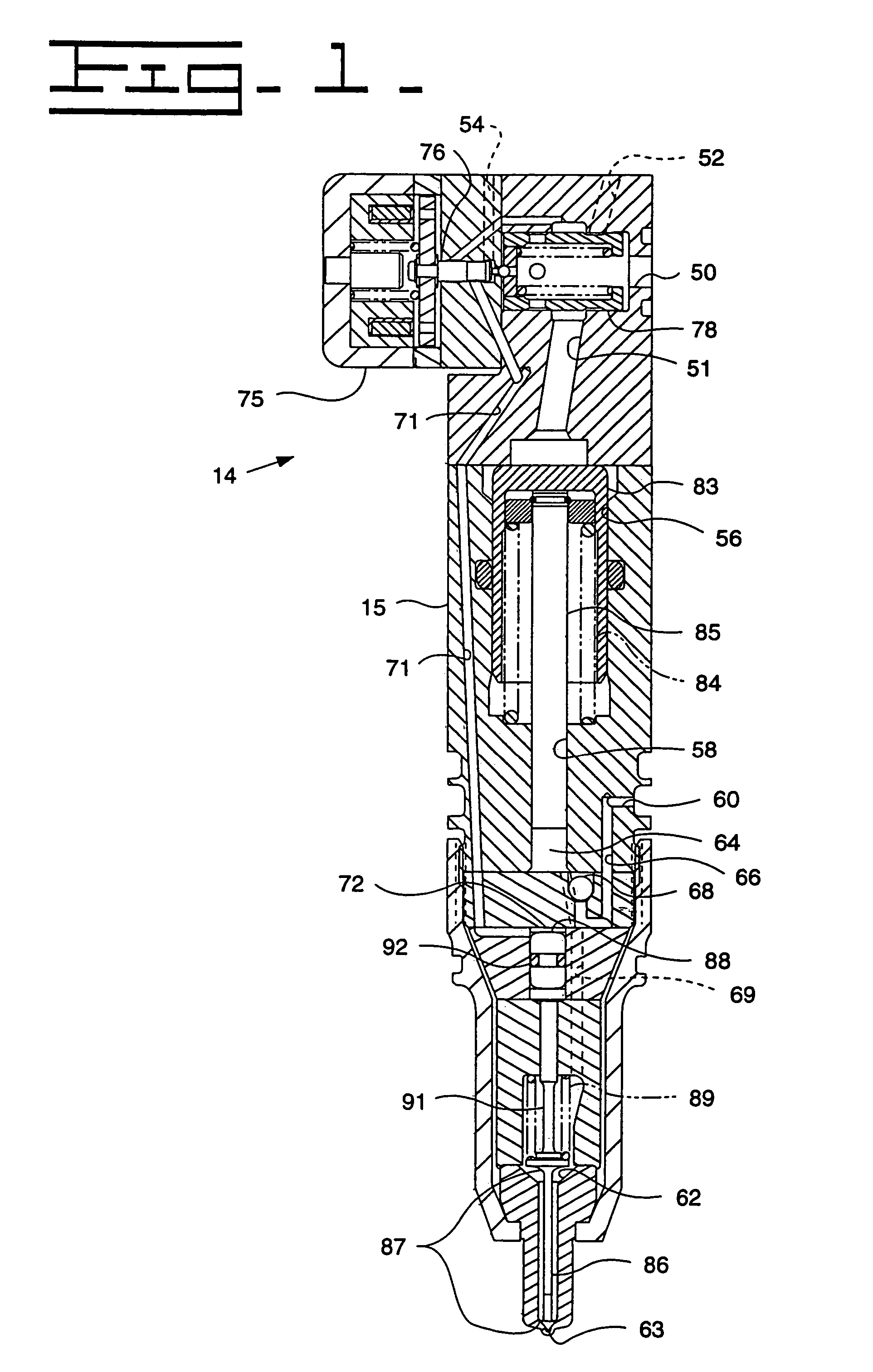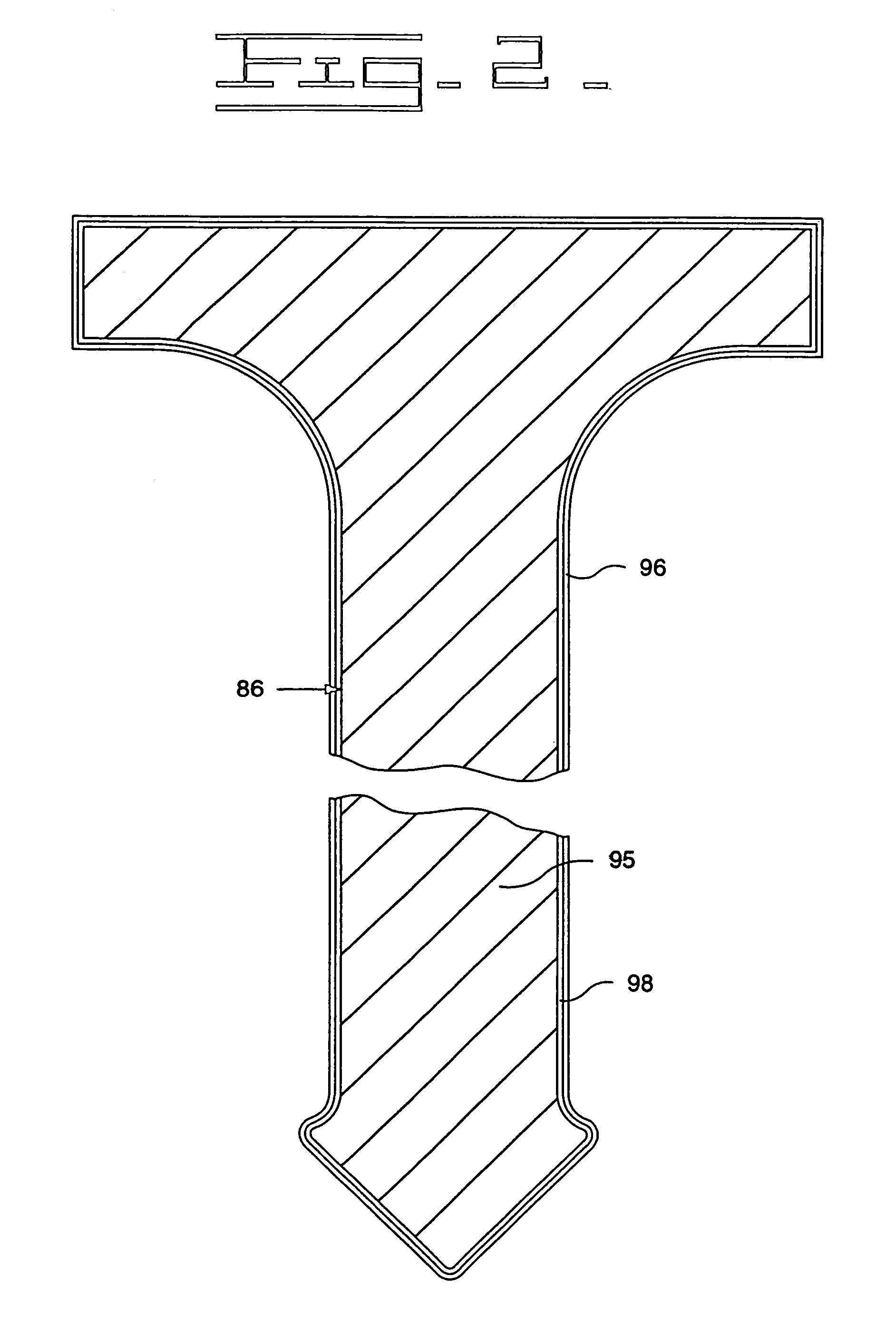Thin film coatings for fuel injector components
a fuel injector and component technology, applied in the direction of fuel injection apparatus, wear-reducing fuel injection, charge feed system, etc., can solve the problems of fuel injector tip failure or overall performance degradation of the fuel injector, fuel injector failure, and electric control fuel injector operating in a much harsher or severe environmen
- Summary
- Abstract
- Description
- Claims
- Application Information
AI Technical Summary
Benefits of technology
Problems solved by technology
Method used
Image
Examples
examples
[0044]The following Examples will serve to further typify the nature of the invention but should not be construed as a limitation on the scope thereof.
[0045]Accelerated wear tests were performed on Caterpillar fuel injector components operating within a Caterpillar Fuel Injector. The fuel injector needles contained in the tested fuel injectors included at least one with a tungsten carbide containing carbon thin film coating on a low alloy steel substrate (52100 Steel), at least one with a tungsten carbide containing carbon thin film coating on a tool grade steel substrate (M2). The wear test was a combined needle check and corresponding tip wear test that measures the protrusion change in microns. Generally, the lower protrusion change represents improved wear characteristics. The test samples were compared to wear tests for two baseline Caterpillar fuel injectors having no coatings applied to the needle valve member. The two baseline samples included a needle valve member one made ...
PUM
| Property | Measurement | Unit |
|---|---|---|
| thickness | aaaaa | aaaaa |
| thickness | aaaaa | aaaaa |
| thickness | aaaaa | aaaaa |
Abstract
Description
Claims
Application Information
 Login to View More
Login to View More - R&D Engineer
- R&D Manager
- IP Professional
- Industry Leading Data Capabilities
- Powerful AI technology
- Patent DNA Extraction
Browse by: Latest US Patents, China's latest patents, Technical Efficacy Thesaurus, Application Domain, Technology Topic, Popular Technical Reports.
© 2024 PatSnap. All rights reserved.Legal|Privacy policy|Modern Slavery Act Transparency Statement|Sitemap|About US| Contact US: help@patsnap.com










